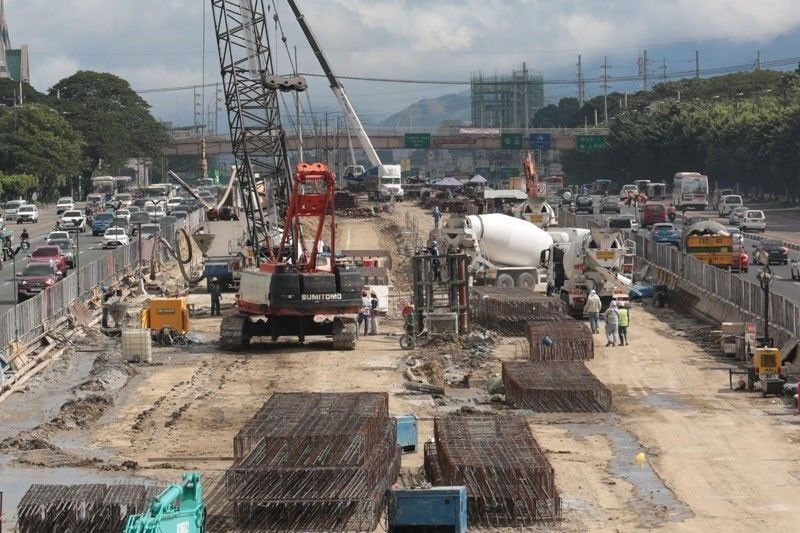BBB projects flagged for viability

MANILA, Philippines — The government should put on hold several railway and airport flagship projects under the Build Build Build (BBB) program to make way for lower-cost and more inclusive road transport projects amid the pandemic, Ateneo de Manila University economists said.
In a working paper published recently by the Ateneo Center for Economic Research and Development (ACERD) titled “Overhauling Land Transportation in the New Normal and Beyond,” economists Jedd Ugay, Monica Lavares, Jerik Cruz and Marjorie Muyrong said while the government’s ambitious infrastructure program is a critical area for stimulus spending in line with economic recovery efforts, the development of some of these projects may suffer from social distancing protocols during the construction period, making completion unlikely within the current administration.
The possibility that travel restrictions and social distancing measures will stay for a longer period may also “severely impair the long-term viability” of several projects, they said.
Among the projects identified to have high viability risks at the moment are the following: Unified Grand Central Station, LRT 2 West Extension, Metro Manila Subway Phase 1, MRT 3 Rehabilitation, MRT 4, LRT 2 East Extension, Mindanao Railway Phase 1, Subic-Clark Railway, Sangley Airport, New Manila International Airport, and Ninoy Aquino International Airport,among others.
“Specific infrastructure sectors that are particularly vulnerable to more pessimistic scenarios include proposed railway, airport, and tourism-related projects,” the paper noted.
“Just as with sectoral upheavals experienced by the air travel, hospitality, and tourism industries since the inception of the COVID-19 pandemic, a failure to stamp out the disease will mean that air travel – including for tourism purposes – will be dampened for years on end, which will undermine the returns of projects aimed at supporting the operations of these sectors. Equally troubling will be the economic prospects of mass commuter railways, which comprise several of the most expensive projects in the BBB portfolio.”
They noted that should restrictions in mobility prevail in the foreseeable future, huge subsidies may be required to keep such projects commercially viable and take away government resources from public investments that need to be immediately made in response to the health crisis.
“Along with debt payments for foreign-funded projects, these subsidies could thus ‘crowd out’ domestic public resources which could otherwise be allocated for pandemic-related investments,” they said.
The economists are urging the government to review and redesign the BBB program with the goal of minimizing public expenditures on projects that can otherwise be undertaken as public-private partnerships, and should be put on hold especially should there be indication that the coronavirus pandemic will persist into the longer-term.
“Public resources that are and will be allocated to such projects can instead be used to fund more inclusive road transport investments as well as COVID-related spending,” they said.
In line with this, they are pushing for investments in inclusive and efficient road transport infrastructure that will immediately service the needs of workers.
These include rapid bus transit systems, as well as projects supporting non-motorized road transport.
Under the revised list of flagship projects these will include the Metro Manila Bus Rapid Transit (BRT) 1, 2 and 3 as well as the EDSA Greenways Project, all of which will be financed by official development assistance (ODA).
Likewise, the Cebu BRT and the Davao Public Transport Modernization Project which will also be financed by ODA.
“It is advisable for the Duterte administration to focus further on providing sustainable road and active transport to the public through more inclusive, low-cost, and economically-viable systems,” the Ateneo authors said.
- Latest
- Trending


























